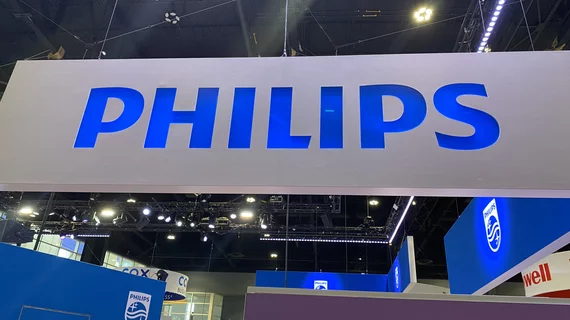Philips launches new AI-powered CT system said to improve workflows, increase returns
Philips has developed an AI-powered CT system that increases throughput and improves image quality, all while decreasing patient exposure to ionizing radiation.
The Philips CT 3500 includes several features said to improve workflows in both routine diagnostic and high-volume settings, leading to an increased return on investment.
“Increased financial pressures, chronic staff shortages, and escalating patient demand are driving radiology departments to do everything they can to maximize throughput, to guarantee equipment uptime, and to avoid repeat scans,” Frans Venker, general manager of computed tomography at Philips said in a prepared statement. “We’ve engineered the Philips CT 3500 to reduce the pain points that these high-volume departments face by developing a versatile, reliable, high-throughput imaging solution. It automates radiographers’ most time-consuming steps so that they can spend more time focusing on the patient.”
The new CT system includes Philips’ latest AI-powered CT Smart Workflow, Precise Position, Precise Planning and Precise Intervention technology to automate every aspect of positioning, scanning and procedural processes. Philips indicates that these features can improve position accuracy by 50% and reduce positioning time by 23%.
Also included with the system is Philips’ Precise Image AI-based reconstruction. This feature is said to improve image quality by increasing low contrast detectability by up to 60% while also lowering image noise by 85% and decreasing radiation dose by 80%. Image reconstructions on the system can be completed in under one minute, according to Philips.
Philips also touted the system’s build, noting that it enables departments to enjoy increased up-time thanks to technology that tracks performance metrics via monitoring sensors. In turn, Philips service engineers are alerted to abnormalities and can address them prior to operational impacts occurring. The CT 3500 was crafted using Philips’ vMRC tube.
The new system is set to debut at the 2023 China International Medical Equipment Fair (CMEF 2023, May 14-17 in Shanghai, China) and the 2023 Deutscher Röntgenkongress (ROKO 2023, May 17 –19 in Wiesbaden, Germany).
To learn more, click here.

